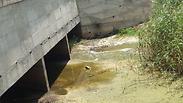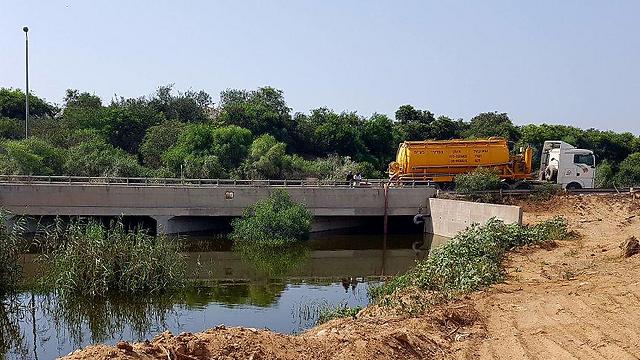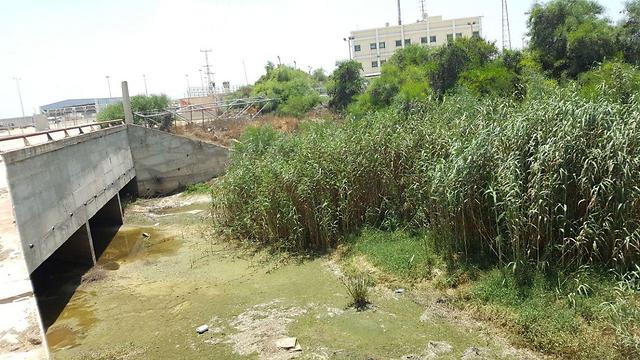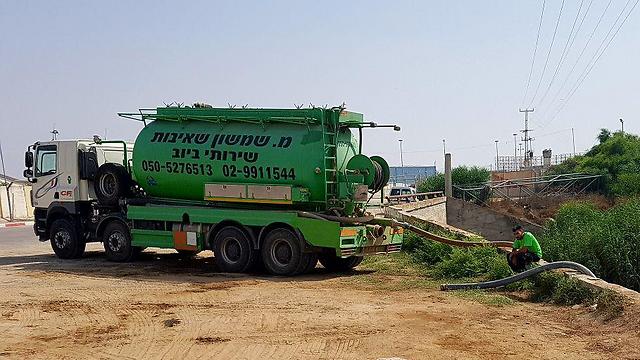
The two pumping stations were closed after officials from the health ministry visited the sites where sewage had accumulated near the Erez Border Crossing.
In the last two weeks, following the collapse of water purification facilities in Gaza and the inability to repair them due to the electricity crisis, Palestinians in the northern neighborhoods of the Gaza Strip—Beit Hanoun and Beit Lahia—began to pump sewage into Nahal Hanun, which crosses Israel and empties into the sea.
As a result of the flow of wastewater, the stream was flooded, creating a large environmental hazard, which began to pollute groundwater from the coastal aquifer, from which Mekorot pumps drinking water.
In the last few days, the Palestinians have increased the flow of the sewage, forcing Israel to construct a dam in Nahal Hanun, east of Nativ HaAsara near the Gaza border. Initially, the Hos Ashkelon Regional Council had attempted to pump the sewage into trucks, but the amount of accumulated sewage rendered this option unfeasible.
The closing of ground water pumping stations is an extreme step and serves to highlight the extreme humanitarian crisis currently underway in the Gaza Strip and its direct impact on Israel.
"The Israeli government must understand that the difficult humanitarian situation in the Gaza Strip is worsening and its implications for the Gaza area communities are directly observable," said Ashkelon Regional Council head Yair Farjun.
"If the situation does not change, the entire State of Israel will be affected by what is happening on the other side of the border. We need immediate government intervention including policy formulation and decisions on how to deal with such phenomena," said Farjun.



















